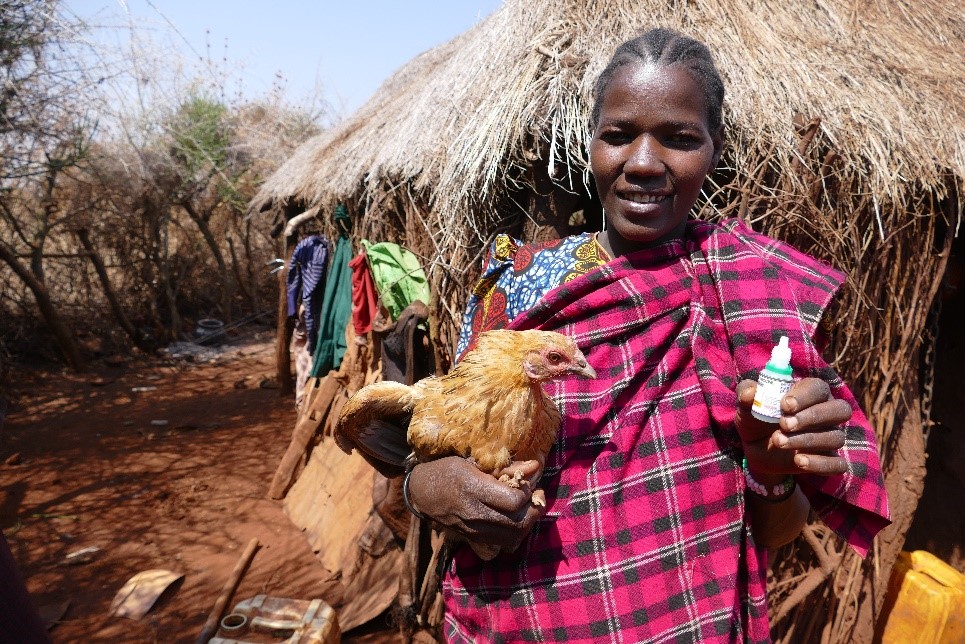
Preventing Poultry Disease
Unuwas, after receiving training on vaccinating chickens against a devastating yet preventable disease, says, “Today I am very happy. I now have the answer to my questions on what kills our chickens, and I have the solution as well.”
The most recent rainy season in Tanzania’s northeast was very short, causing significant reductions in farm yields. Additionally, a poultry virus called Newcastle Disease brought a high mortality rate among local flocks. Uncertainty over what caused the losses brought their owners sadness and a feeling of hopelessness. Many women gave up on raising chickens altogether, afraid of losing them before they reached marketable size and weight. Until the program offered training about the disease and the vaccine to prevent it, they just did not know what to do.
Lack of extension services, unpredictable rains, poor soil health, long dry spells, and unsustainable farming practices all contribute to food and water insecurity in the district. Mennonite Central Committee and local partner One World and are working with communities on a range of strategies to improve lives and livelihoods, including Conservation Agriculture training, Village Savings and Lending groups, and paying for the services of a Water Harvesting Technician. Despite the challenges of starting the program during a global pandemic and the deaths of the program’s director and the country’s president, there is cause to celebrate. Over 100 farmers (mostly women) who raise chickens now have a way to prevent Newcastle Disease.
Tanzania Hanang Program
Led by Mennonite Central Committee and Local Partner One World Sustainable Livelihood
